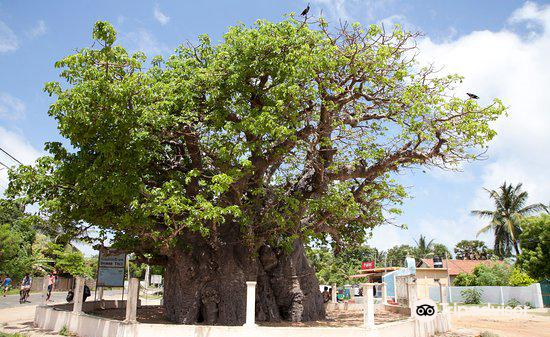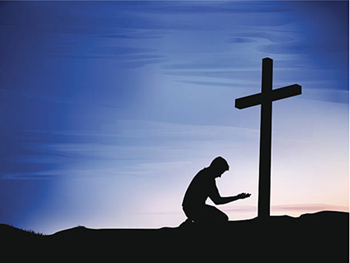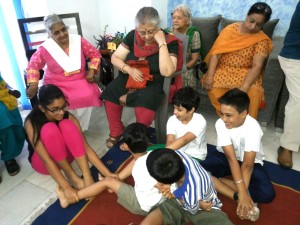Shanthi Williams
The poem ‘I Still Matter’ by Patricia A. Fleming brings out the feelings and thoughts of a senior. It is best if you listen to it being read by Simerjeet Singh on You Tube, but let me share the words of the poem here:
I Still Matter
I’M STILL HERE
My looks are nothing special,
My face reveals my age,
My body shows some wear and tear,
And my energy’s not the same.
Too often my memory fails me,
And I lose things all the time.
One minute I know what I plan to do,
And the next it may just slip my mind.
I try hard to avoid my mirror.
There are things I would rather not see,
And even those times when I just catch a glimpse,
I can no longer recognize me.
The things I used to do with ease
Can now cause aches and pains,
And the quality of the things I do
Will never be quite the same.
I always compare my older self
To those younger versions of me,
And I know I’m wasting too much time
Missing who I used to be.
But the thing that really makes me sad
Is despite what people see,
Underneath my tattered, worn out shell,
I’m still the same old me.
My heart can still feel endless love,
And at times it still can ache.
My heart can fill with so much joy,
And then it can suddenly break.
My soul can still feel sympathy
And longs for forgiveness and peace,
And there are times its light shines boldly through,
And times when it longs for release.
It’s true, maybe now that I’m older,
Feeling lonely may be status quo,
But it also has made me more willing
To forgive and let past conflicts go.
So maybe to some I look ugly and old,
A person who barely exists.
I’m still quite aware of the beauty inside,
And my value should not be dismissed.
So although not as strong and no beauty, it’s true,
I’m still here and want so much to live,
And I know that there’s no one in this world quite like me,
And no one who has more to give.
Patricia A Fleming. “I Still Matter.” Family Friend Poems, September 26, 2017. https://www.familyfriendpoems.com/poem/i-still-matter
Recently, as I was reflecting on aging, I read a book, Growing Old Gracefully, by Robert M. Solomon, which challenged me immensely. It helped me to explore more about this season of life, observe other seniors and also ask myself the question, ‘am I growing old gracefully?’ Eleanor Roosevelt said, “Beautiful young people are accidents of nature, but beautiful old people are works of art.” In this article, I would like to share a few thoughts on what I have learnt about growing old gracefully, and becoming “a work of art” in this season.
So, what does the Bible say about aging?
In Psalm 92:14, referring to the righteous, the Psalmist says, “They will still bear fruit in old age, they will stay fresh and green.” Furthermore, in Proverbs 16:31, the author writes that, “Grey hair is a crown of splendor. It is gained by a righteous life.” So, on one hand, senior citizens are likened to trees that “will still bear fruit” and “stay fresh and green.” Let us look at two ancient trees in Sri Lanka…
The Baobab tree in Mannar, is said to be approximately 700 years old. The Baobab tree is native to Africa, and it is believed to have been brought to Sri Lanka by Arab traders. It typically grows in the desert. It is very useful, as one tree contains 4500 liters of water. It has medicinal value too. So, it is useful and purposeful, though old.

The oldest breadfruit tree in Sri Lanka is in the Galle Dutch Fort. It was brought to Sri Lanka by Dutch people around 300 years ago. It has grown into a giant breadfruit tree now, and is still bearing fruit.

Like the Baobab tree and the breadfruit tree, though older, senior citizens too can live useful and purposeful lives.
There is another view also expressed in the Bible, which must be taken into consideration. It says that our latter years will be difficult years, with deteriorating bodily functions and disabilities of many kinds. This is a reality we have to live with. In Ecclesiastes, the writer refers to this season as “the days of trouble.” In Psalm 71:9, the Psalmist cries out to God, ‘Do not cast me away when I am old, do not forsake me when my strength is gone.”
As seniors, we have many fears regarding old age, wondering how our future will be. “Will I have unbearable pain?” “Will I be able to manage on my own?” etc. etc. However, the Bible shows us that we can trust God, our loving Heavenly Father, to care and provide for us. He has given us many promises in the Bible, which we can trust. In Isaiah 46:4 God says, “Even to your old age and gray hairs, I am he, I am he who will sustain you. I have made you and I will carry you; I will sustain you and I will rescue you.”
With this assurance, let us look at how we can grow old gracefully.
Forgiveness
Experiencing Christ’s forgiveness at the foot of the cross and starting a personal relationship with Jesus. It is the beginning of a spiritual journey with Him, which continues even after death, in Heaven. If you have received His forgiveness freely, you will be able to offer it freely to others. “We love because He first loved us” (1 John 4:19), and “we forgive because He has forgiven us.” In Matthew 6:14, Jesus says, “For if you forgive other people when they sin against you, your heavenly father will also forgive you.”

As senior citizens, we have had a long journey through life, and it is likely that we have experienced many hurts, some intentional, and some unintentional. When we do not forgive those who hurt us, we become bitter and unhappy. Surely, we do not want to carry these hurts till the end of our lives! If you have not experienced the forgiveness of sins that Jesus gives, I advise you to ask Him today. That is the beginning of the process of forgiving others. The thief on the cross looked to Jesus just before his death and he was forgiven, because our God is gracious and abounding in mercy. So, let’s ask God to forgive us and help us forgive the people who have hurt us.


Gratitude
During an interview, Kim Kiyosaki refers to a survey done among centenarians (those over 100 years old). She says that the 2 factors that helped them live this long were that they lived purposeful lives and had positive thinking – they were optimists!
Gratitude is a quality that helps us to be optimistic. However, it does not come naturally to most of us -we need to cultivate it. 1 Thessalonians 5: 18 tells us to, “give thanks in all circumstances; for this is God’s will for you in Christ Jesus.” “Give thanks in everything” means in every circumstance – in joy and in sorrow; for everything – means for prosperity and for adversity; in every place – means in the house of God and on the bed of sickness. Christians should not only be engaged in constant prayer, but in constant thanksgiving. For this thankful spirit is the will of God; his desire.[i]
When we look back at our lives there are many things we can thank God for. It may be true that our lives have been tough at times, like being in a desert. Charles Swindoll wrote of how we can choose to view these times: “No one fails to see that growing old has its difficulties and heartaches, but to see only the hot sands of your desert experience and miss the lovely oasis here and there (though there may be few), is to turn the latter part of your journey through life into an arid, tasteless endurance, which makes everyone miserable.” We can be thankful for every oasis even in a desert! If we don’t have this attitude of gratitude, it will make us miserable – and all the others around us as well!
Swindoll continues, “Please don’t forget – God has decided to let you live this long! Your old age is not a mistake! Not an oversight… not even an afterthought.” Therefore we should view old age as an opportunity; to reflect on the fact that there is much to thank God for – that He loves you and that your life is a gracious gift. When your heart is filled with gratitude, your attitude changes; you will complain less, and the grumbling vanishes! You will become more positive. I have seen this in many lives.
My mother-in-law had a tough life. She became a widow when she was young, with four children. She had to become the breadwinner overnight, facing many challenges. During her latter years, I saw an attitude of gratitude in her – it was unbelievable. When she was 94 years old, she had to undergo a painful surgery. Even in the midst of the pain and all that she had been through in life, I saw her on that hospital bed, raising her hands upwards and singing, “Count your blessings,” and sharing the love of Jesus with the nurses.
Finding community
We are made for relationships and community. We were born into a family, belonged to a school, joined a workplace, a church, and are part of a neighborhood. We need a community to support, encourage and correct us. We need community for our maturity and growth too. We need the often-disturbing intrusions of others for our growth. We cannot grow alone. God wants us to live in fellowship with others. For some of us, our biological families may not be with us here in Sri Lanka, or maybe some of our family members have left this earth; don’t give up! Look around elsewhere, maybe in the church or your neighborhood – God will show you people you can connect to.


The family of God can become your own family, as in the early church. Hebrews 10: 24-25 says, “And let us consider how we may spur one another on toward love and good deeds, not giving up meeting together, as some are in the habit of doing, but encouraging one another—and all the more as you see the Day approaching.” My husband had Alzheimer’s Disease, which required a long period of care. It was a difficult time, but I was able to go through that period because of the community that supported us in many ways – our biological family, the family of God and friends.
In recent times, doctors recommend older people to talk more, as it keeps the brain active and enhances memory. They say it also relieves stress, and helps avoid mental illness. It is not good to bury our sorrows; when we share them, they are halved. Speaking also activates the throat and facial muscles, increases lung capacity and reduces eye and ear deterioration.
Aim to grow old while warm and lovingly connected, not cold and lonely. For this to happen we need to reach out to others. We need to see what we can do for others in our community and give ourselves to them. Jesus taught us that on the Day of Judgement, King Jesus will say to the faithful, “For I was hungry and you gave me something to eat, I was thirsty and you gave me something to drink, I was a stranger and you invited me in, I needed clothes and you clothed me, I was sick and you looked after me, I was in prison and you came to visit me… Truly I tell you, whatever you did for one of the least of these brothers and sisters of mine, you did for me.” Mathew 25: 35-36, 40. We are called to be hospitable and loving, i.e. to be a blessing.
Being a blessing to others
We can be a blessing in many ways: teaching children (especially those from impoverished backgrounds), cooking for someone, sharing a meal with someone, sewing small items for gifts (e.g. pot holders, hankies etc.), making cards, visiting or calling someone who is lonely, praying for someone etc. the list is endless.

Depending on our circumstances and health, an active aging person can meet up with others by visiting them, inviting someone for a meal, sending a meal and helping in numerous ways. If our health does not permit us, we can call or text an encouraging message to someone. You will find that you are fulfilling God’s purpose in your life for this season.
Start making a list of people in whose lives you can be a blessing – family members, church members, lonely people in the neighborhood etc. Sometimes just offering a listening ear, giving a healing or encouraging word is sufficient. Make a prayer list and pray for those God has placed around you – it will help you experience many miracles.
May God help us all to become more like Jesus, even in this season of life – and in every season of life.
*Shanthi Williams worships at the Nugegoda Methodist Church. She taught at Methodist College and Logos College before her retirement.